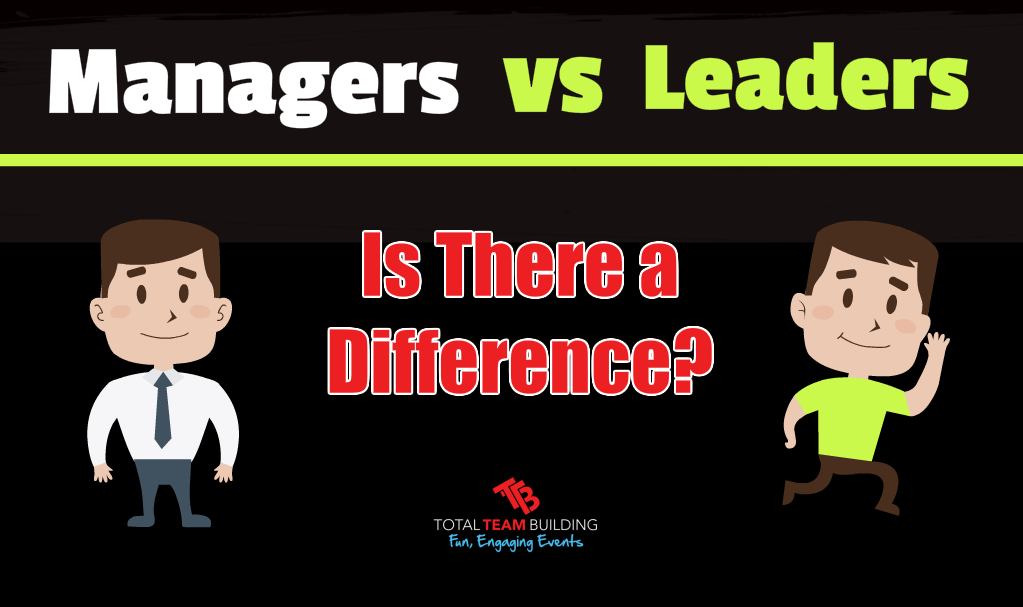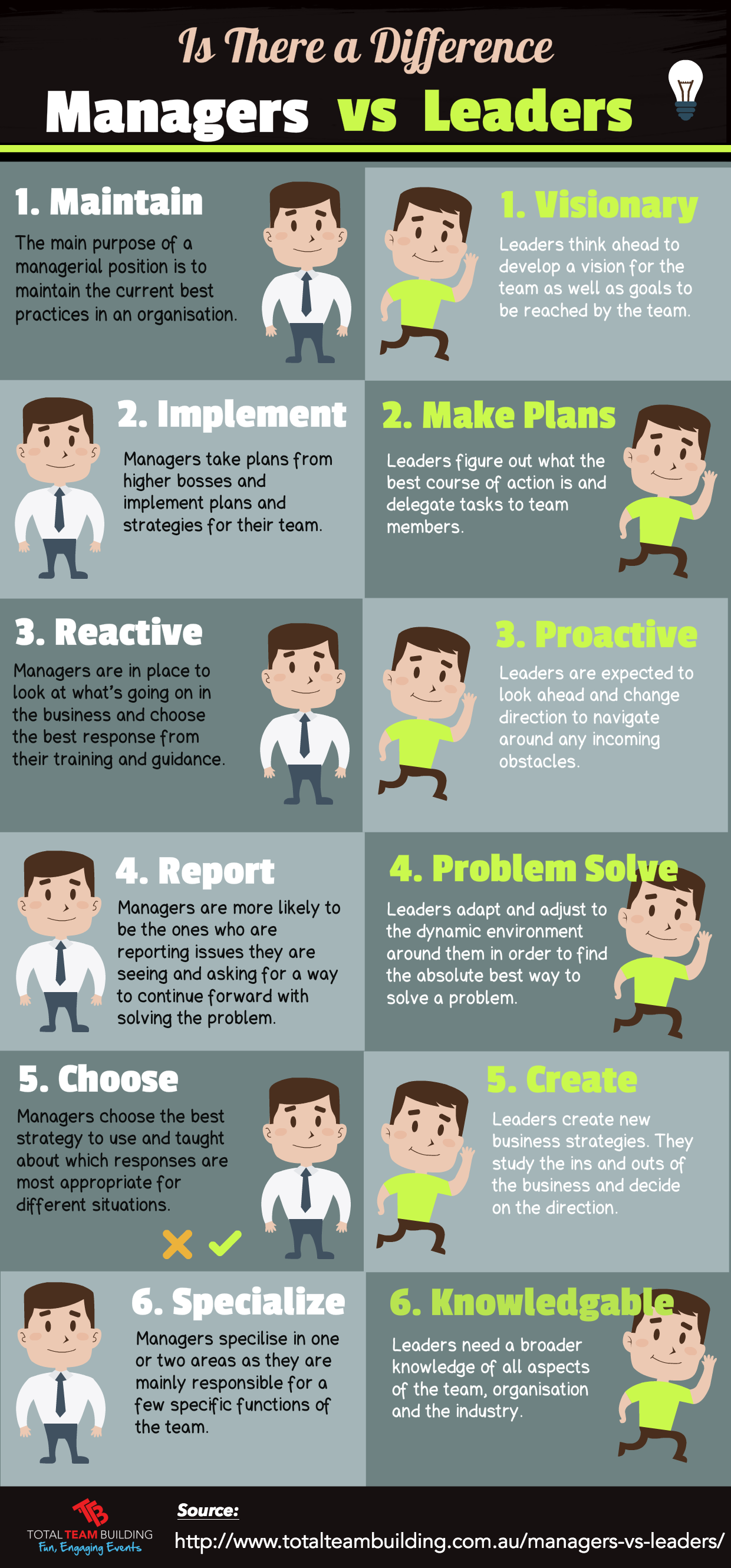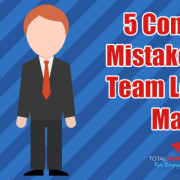Managers vs Leaders: Is There a Difference?
Running a Team: Managers Versus Leaders
The terms “manager” and “leader” used to be used interchangeably; however, in more recent years a difference in usage has developed for those separate terms. Managers are said to be responsible for maintaining operations, organising, and controlling short-term administrative duties. Leaders, on the other hand, are those who motivate people, think long term, and create new innovations by not following the status quo.
What separates these two roles in a team? Can a single person act as both of these? Here are a few of the main things that separate leaders and managers:

What Are The Differences Between a Manager And a Leader?
These listed differences are based off of general usage of the two terms in a business context and are not specific to any industry, organisation, or type of team.
- Managers are not necessarily responsible for the vision and goals of a team.
The main purpose of a managerial position is to maintain the current best practices in an organisation. This means that managers don’t have as much freedom to deviate based on what they believe are the best goals for the team. Leaders are the ones who sit down and think ahead to develop a vision for the team as well as goals to be reached by the team. These will be passed on to management to implement in most cases.
- Leaders tend to make individual plans rather than implementing those given to them.
A team leader has more control over what the team should be doing at any given time. Rather than taking plans from higher bosses and using those for their team, they will be the ones figuring out what the best course of action is and delegating tasks to team members.
- Managers are more reactive, leaders are proactive
Managers are in place to look at what’s going on in the business and choose the best response from their training and guidance. Leaders are expected to look ahead and change direction to navigate around any incoming obstacles.
- Leaders are required to problem solve, managers report problems or use set solutions.
Similarly to point number 3, good leaders require the ability to problem solve. They have to be able to adapt and adjust to the dynamic environment around them in order to find the absolute best way to solve a problem. Managers are more likely to be the ones who are reporting issues they are seeing and asking for a way to continue forward with solving the problem. This is partially because a manager may not have the same freedoms that a leader does in the way the team should be led.
- Managers choose the best strategy to use, leaders create new business strategies.
As a manager, you are trained in business strategy and taught about which responses are most appropriate for different situations. You do not necessarily come up with the strategy, but you are the one who is tasked with making sure it is implemented and followed. Leaders are those who will be taking the time to study the external and internal environments around the business and deciding in what ways the team can act in order to reach the goals most effectively.
- Leaders are knowledgeable in many areas, managers specialise in one or two.
Specialisation can be a big advantage for managers as they are mainly concerned with a few specific functions of the team. Leaders have to have a broader knowledge of all aspects of the team and the organisation as well as the industry so that they can perform their expected duties with excellence.

Your Leadership Style
As an authority figure over your team, you have to periodically ask yourself this question: are you a leader or a manager? You don’t necessarily have to fit into all of the normal roles of either and can easily adapt characteristics of both a leader and a manager at different points in your career and depending on the needs of your team.
Leadership is not a static thing. It must be fluid and ever-changing as the circumstances of your business change. Learn to take on the necessary traits of both a manager and a leader whenever they are needed so that you can bring the best out of your team at all times.
About Total Team Building
Total Team Building specialise in teams…we facilitate fun engaging experiential team building activities designed to enhance leadership, communication and collaboration. For more information about how Total Team Building can help you and your team contact us today.









